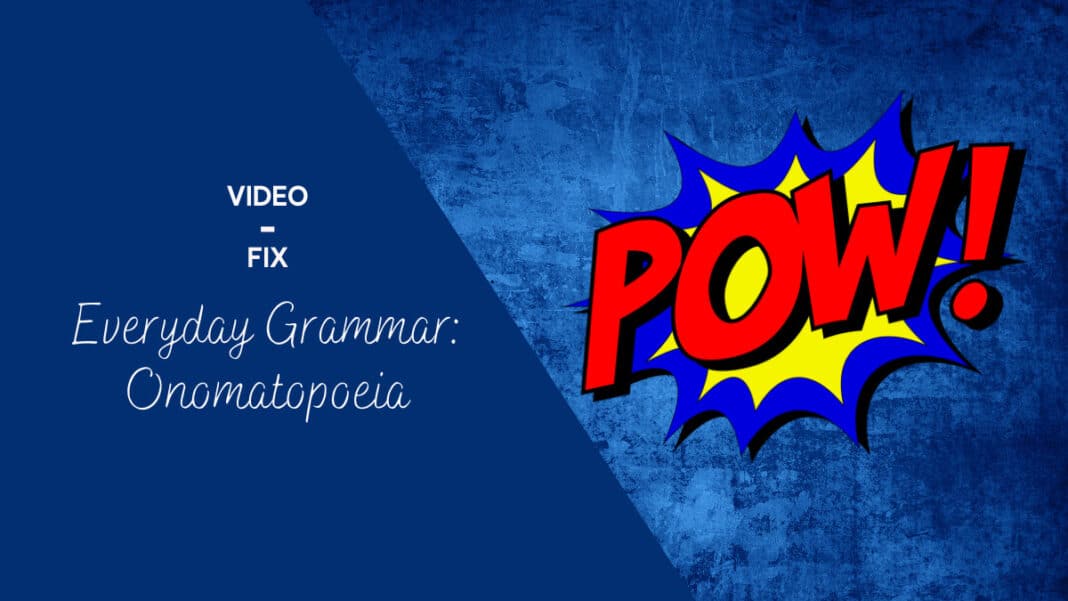Hello again, language lovers!
This week we are going to dive into the world of linguistic terms and look more closely at Onomatopoeia. In short, Onomatopoeia is the use of words that imitate the sound they describe or refer to. Water can splash and dribble, voices can whisper, growl or mumble, just to name a few examples. And – boom – you’ve understood what this figure of speech is. The delighting thing about these words is that they enhance the written language and can evoke the feeling and sound of reality. The figure of speech makes language more impactful and more memorable.
This effect comes in handy in regard to creative writing, storytelling, poetry, graphic novels (comics) and even in business as this figure of speech brings a text to life and this enhancement appeals to the ear. You will especially find onomatopoeia frequently in advertising, slogans and branding. It is important to note that onomatopoeic words vary from language to language and cultures. How does the dog in your language bark?
The technical term “Onomatopoeia” has a couple of distinct variants:
- Made-up words that fill the void when no existing word can sufficiently represent the real sound.
- A series of letters that mimic a raw sound that actually isn’t a word such as “Zzzzzz” to represent the sound of sleeping or “hachoo” for a sneezing sound.
- Real words that sound like real things that can be named conventional onomatopoeia as, for instance, “meow”.
Just to name a few variants. Do you know more examples?
References:
https://www.dictionary.com/browse/onomatopoeia
https://examples.yourdictionary.com/5-examples-of-onomatopoeia.html

Written by Victoria Milhan, Schuman Communication Trainee Terminology Coordination Unit. She holds master’s degrees in English Language (linguistics) and Medieval English Literature, Newer English Literature and Celtic Studies. Victoria is enrolled as a PhD student at Bonn University in Germany.

